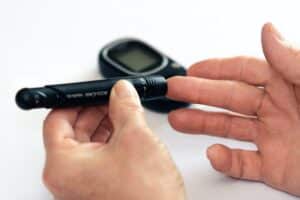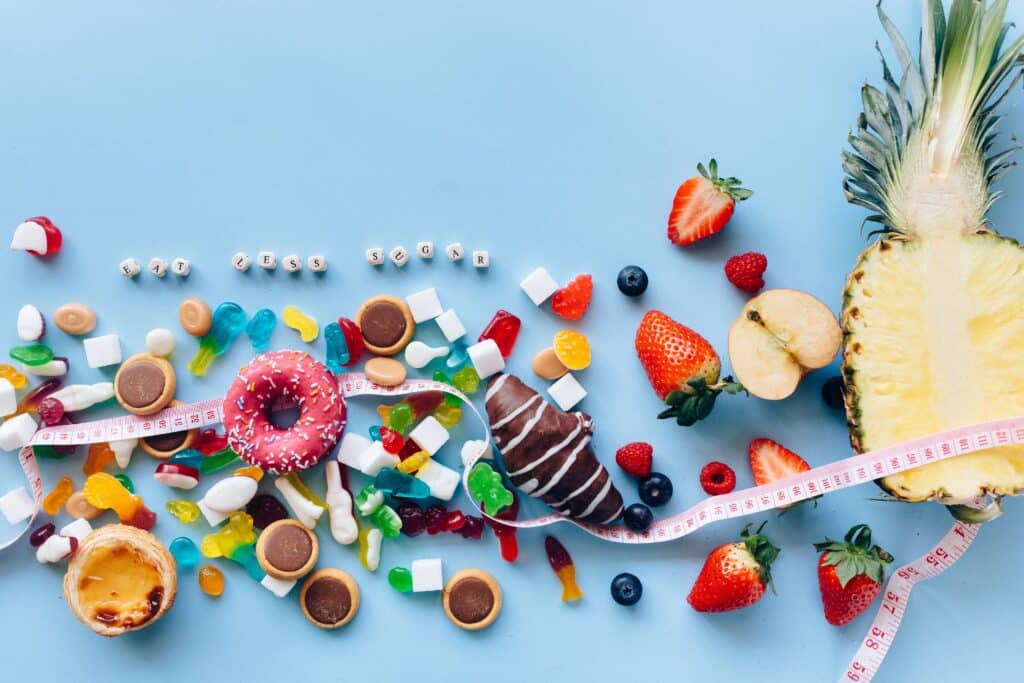
I was asked a great question by one of our members recently, and I thought I would share my thoughts as you might be interested as well.
The question was:
I recently watched “You Are What You Eat” on Netflix and they talked about Dexa scans. As someone who prioritizes fitness and generally eats healthy meals but still likes to enjoy sweet treats every day, I’m wondering if a measurement like DEXA scans that would help me better understand where my overall health is at? Just curious to hear what you think.
I love this question, as she’s diving into the ethereal realm of “how do I measure my health?” and it’s a tremendously important question that lacks a straightforward answer.
Here’s my expanded take, which went deeper than I expected when I started writing it. I hope you enjoy it!
–
Funny you ask about DEXA scans – I’ve had them before, wrote a blog post that referenced some DEXA data a while ago, and definitely happy to share what I think :). I haven’t seen that Netflix series though but may check it out, so my take and their take might not align.
In short, a DEXA scan is the best objective measure we currently have available for muscle mass, fat mass, the distribution of both (subcutaneous fat – under the skin, which is less bad than visceral fat – around the organs), and of course bone density.
As far as I understand, a DEXA scan is 100% accurate, while other measures such as a bod-pod or standing on the scales that measure body fat via bioelectrical impedance, are not.
Now, let’s dive deeper!
The first part of this question is how do you define health?

For most of Western medicine, it’s the absence of disease.
Even the word disease comes from dis-ease or un-ease, meaning “the lack of ease”, with ease being comfort, freedom, and the ability to do the things you want to do.
Based on the etymology, as long as you have ease you could consider yourself healthy.
It’s not that simple, and it’s important to recognize how the word we use so often came about to see the lens we view health.
As far as I know, we don’t have a great – or even agreed upon – definition of healthy.
Plus, as humans live longer and longer some things start to break down naturally.
Are you diseased if you are elderly? Are you diseased if you have a nagging injury from university sports? Are you diseased if you need glasses?
I can’t say.
But if I imagine myself on my deathbed after a long and happy life of fulfillment and joy doing things I love with those I love, I think I’d consider myself to have had a healthy life even if I had a few aches and pains along the way.
Knowing there isn’t a great definition of health, how do we measure it?

We have lots of tools to measure things that have a correlational and causational relationship with what we consider to be health. MRIs, blood tests, hormone levels, body composition, strength, lung capacity, activity level, alcohol consumption, and more.
There are even businesses that generate their revenue from measuring health, such as MedCan in Toronto where you can pay a premium for a gamut of tests to give you an idea of the whole picture.
The challenge is what’s the relationship between the metrics these things measure and health?
For instance, a DEXA scan measures muscle mass, fat mass, the distribution of both, and bone density.
As we know lower body fat isn’t necessarily better. Being 1% body fat is terrible for you, as typically can be said with excessive fat mass as it leads to and increases the severity of other issues. So having the “right” amount, which is a range not an amount, of fat mass is probably “healthy”.
The same can’t be REALLY said for bone density as generally speaking the more the better and it is a concern as you age, particularly for females as they are at a higher risk of osteopenia and osteoporosis. So maybe if you have more bone density you are healthier.
And when it comes to muscle mass, aside from the 1% who have an insane amount of muscle mass (pro bodybuilders), more is almost always better up to a natural upper limit. We lose muscle mass naturally as we age which negatively affects quality of life, and function, and even more recently we’ve seen an association between strength, muscle, and cognitive function (more strength/muscle = better cognitive function as we age and a lower chance of dementia and Alzheimer’s). More muscle could mean more ease which could mean more health.
But these are only mostly associations, as you can have excess body fat and still be healthy, lean people can still have biochemical challenges or diabetes, not everyone with low bone density breaks a hip when they fall, and some people are significantly stronger than others with the same amount of muscle.
So it’s only a (valuable) piece of the puzzle.
Alright, I know enough now to know I’m confused. Where do we go from here?
I do think a DEXA scan can provide valuable information but it’s not really representative of all aspects of physical health (and we didn’t even get into mental or emotional health!) as a whole.
Along with tests such as cholesterol and blood lipids, balance, mobility, and a whole host of others could provide a great overall look at physical health and can be a valuable tool for objective data.
As much as it’s subjective as hell, I also think a good way to measure physical health is “Can I do what I want to do, and am I confident I can continue to do those things for years and decades to come?”, essentially circling back to the etymology of disease discussed above.
If you want to be healthy enough to do things in the future, the time to prepare for them is now.
You probably don’t want to do a barrage of tests every year to have a bunch of data you might not know what to do with (but you should still get your physical!).
This isn’t all-encompassing, but as an example, the demands on someone who wants to stay active, hike, go camping, ride bikes, etc. are higher than someone who isn’t interested in being active.
You can argue that the more active person is probably healthier, and I’d agree, but because the non-active person has lower demands they might be healthy enough. In the same way, I don’t have the same demands as a pro athlete, there is a sweet spot that is kind of “health” and kind of “relative healthiness” for what you need regularly (for a super non-scientific term haha).
To hit that “relative healthiness” for you, it almost always comes down to doing the things that we know are good for humans, such as:
- Eat mostly veggies protein and water
- Get enough quality sleep
- Get appropriate amounts of cardiovascular, strength, and mobility exercises for your demands
- Spending time recharging doing things you enjoy
- Engaging in riveting conversation with your community
- Doing things that stimulate your brain, bringing curiosity, joy, hope and fun
What about sweets and treats? Am I healthy if I still eat those?

And as a parting thought, for what it’s worth, almost every “very healthy” person I know does not eat, sleep, or work out perfectly. Personally, I still love some treats, as you probably know from seeing my content, and if our bodies are anything they are resilient.
A bit of booze, a few sweets, or the odd night of staying up way too late don’t affect us long-term.
Our bodies are amazing and we have lots of buffers built in – from yawning for more oxygen to buffering blood pH to muscles compensating for an imbalance – and so many more I don’t even understand.
So as much as I encourage being as healthy as possible (whatever the hell that means after writing this article), it’s SO THAT I can sometimes do things that are fun but not objectively great for me.
If you take care of yourself 80-90%, that other 10-20% often does not move the needle one way or the other :).
After all, someone is going to smoke a pack a day and live to 100, while someone else is going to do everything right and still discover they have an incurable genetic disease and were simply dealt a bad hand.
Do your best to stay healthy, whatever that means to you, have some way of measuring health to track your progress (such as tracking workouts and getting a physical every year), and use it all to live an incredible life that fills you with joy and brings positivity to everyone you can.
For getting this deep with me in a challenging subject, I just want to say I appreciate you for being willing to look at the harder-to-measure and understand pieces of health and we have the same interest in living a great life. High five!
Are you looking to improve your health?



